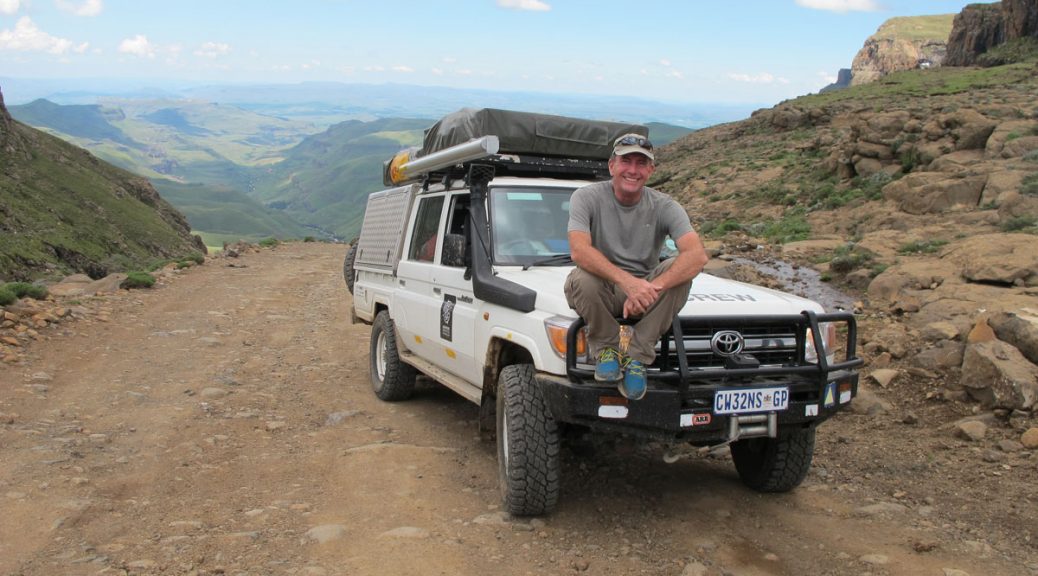A long-term overlanding expedition brings unique challenges. So before you set off, it’s worth asking yourself some key questions. Overlanding expedition specialist Paul Marsh shares his approach. By Magriet Kruger
For more than three decades, 4×4 expedition specialist Paul Marsh has been preparing vehicles and people for travelling to remote destinations. His first long-term expedition was an 18-month crossing of Africa – since then he’s travelled the length of the continent several times. As a consultant, he’s helped both formal expeditions and individuals with trip planning and vehicle preparation. If anyone understands the unique challenges of overlanding for months at a time, it’s this man. So we sat down with Paul to find out what questions you should ask yourself before setting off on an expedition.
The challenges of an expedition
You might have been doing 4×4 trips for years, but now you’re thinking about doing a much longer trip. What would be different? “What’s different is that you’re going to be living out of the vehicle for a lot longer,” Paul says. “Things that are small irritations that you put up with for a week or two become a real challenge when you’re living with them for several months. You end up thinking to yourself that you should have fixed it, but you didn’t. Prepare your vehicle with safety, simplicity and reliability in mind.”
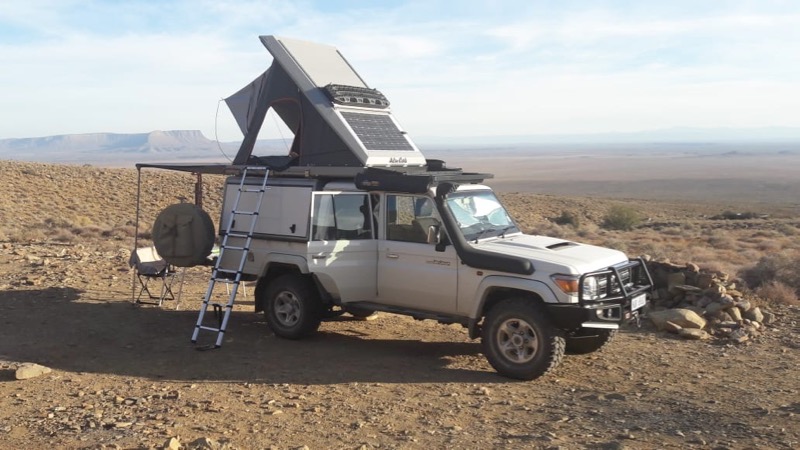
While your first instinct may be to focus on your vehicle, you really want to think about yourself and your way of travelling, Paul says. “I always say the vehicle is one small piece in the puzzle. Let’s be very clear about what you’re doing and why. This is a journey you’re going on. What you want to do is prepare yourself in the best way possible for tackling this journey. It’s about identifying your strengths, your weaknesses, and your knowledge gaps. Then you need to work on plugging those knowledge gaps. My ethos has always been to prepare people from concept to completion.”
Here’s a look at some of the key questions to ask yourself.
1. Are you prepared for the stress of an expedition?
When you map out your journey, be realistic about distances and how long they take. Also be sure to plan enough down-time, Paul advises, because you might not be ready for how stressful an expedition can be. It is not a holiday.
“Going on a trip where you’re travelling all the time and taking on new experiences is a different type of stress. You need to prepare for it. You need to understand that you’re going to have to take breaks. You’re going to have to step back at times. You’re going to have to manage your energy, your time and what you do. If you don’t, you’ll burn yourself out.”
It might sound crazy to become exhausted from something that should be enjoyable, but Paul explains that travelling non-stop uses an immense amount of energy and focus. “Take your foot off the pedal and ask yourself how you’re feeling.” His advice is to check in regularly with yourself and your travelling companion. Support each other by ensuring you stay hydrated, nourish yourself with energy snacks (avoid sugar and caffeine, which cause energy spikes), take regular breaks and enjoy the drive.”
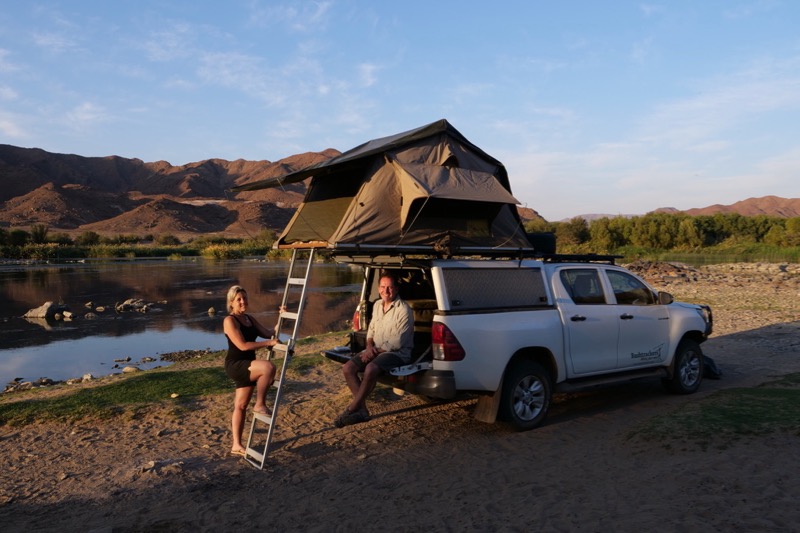
2. Are you ready to take on the responsibility?
Whether you are building your own vehicle and following a personal route or getting a fully kitted-out vehicle and joining a group, you remain responsible for your own experience. “You need to take an active role in preparing for a trip,” Paul says. That could mean reaching out to other overlanders on forums, doing a 4×4 driving course or watching YouTube videos. If you are preparing your own vehicle, make sure you have the essential equipment – such as first aid and recovery kit – and know how to use it.
“When you’re away on an expedition, you have to be very self-reliant. There’s nothing worse than coming unstuck with something and you’ve actually got no equipment. You end up relying on some stranger to help you, because you didn’t take the responsibility to prepare yourself or your vehicle.”
Equally important is that both travelling partners are confident in what they can do with the vehicle. “I’ve met couples where it’s only ever the husband that drives the car. There might be a time when he’s hurt himself and his wife is going to have to drive. You must both be confident in all the skills where possible.”
By taking responsibility for your trip, you’re more likely to have a rewarding experience. “The more independent you are as traveler, the more confidence you’ll have to explore remote areas.”
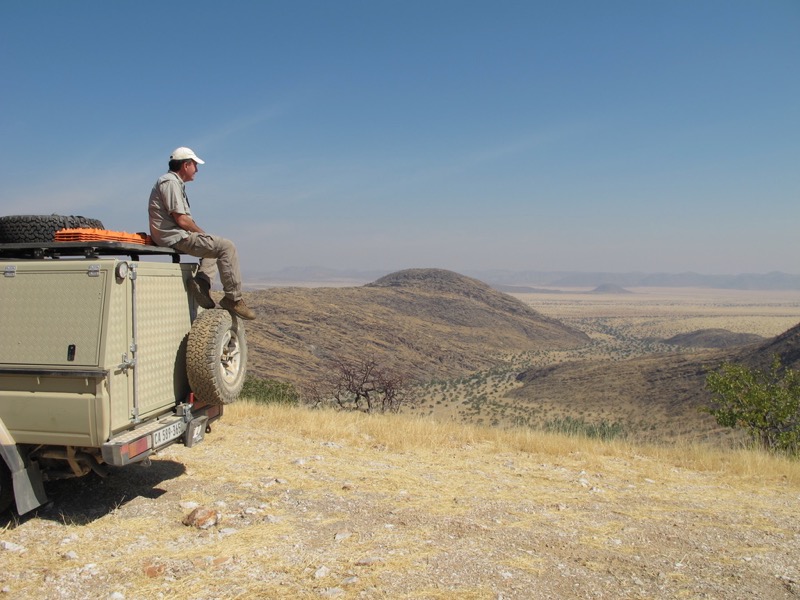
3. How well do you know your vehicle?
For an extended expedition, it’s vital to have an understanding of your vehicle, Paul cautions. “If it’s not one of your skill sets, you need to make it one of your priorities. You don’t need to be a qualified mechanic, though. What you need to be able to do, is carry out checks really well. You need to know what to look for. I have created a checklist that I give all my clients so they know what to check.
“Learn how to look for leaks, become familiar with the vehicle, have a workshop manual for it, have a basic set of tools and carry critical spares in your car. Have your car properly pre-expedition serviced and checked.” If you’re really not mechanically inclined, Paul suggests you get the support of a mechanic, someone you can call if you have a problem on your trip.
Also read: T4A trip planning checklist
If you hear a new noise or something feels different, stop to investigate it. Make it a discipline. It can often prevent a problem becoming a challenge or disaster.
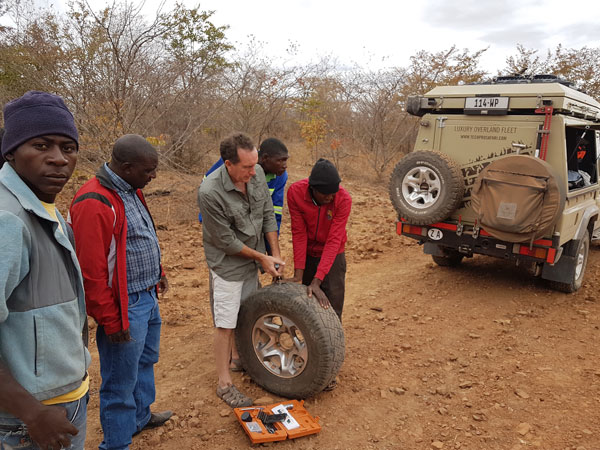
4. Do you really need that item?
Another question worth asking yourself is whether you really need all your gear. If you’ve gradually grown into overlanding, you’ve probably acquired various bits of equipment along the way. “Sometimes you carry gear for the sake of carrying it, because you bought it and threw it in the car. Now the poor car’s groaning under the weight. When you get into camp, it takes a bit of time to set up, but you’ve always done it the same way.
“If you’re at that point, it’s time to take a good look and say, ‘The vehicle is our home. What do we need and why? What don’t we need and why?’ When you go through that exercise, it gives you a very clear idea of why you’re taking an item. Do you really need a torch, a lantern, candles, lights, lamps… What are you going to use? How are you going to use it?”
Also read: The T4A camping checklist
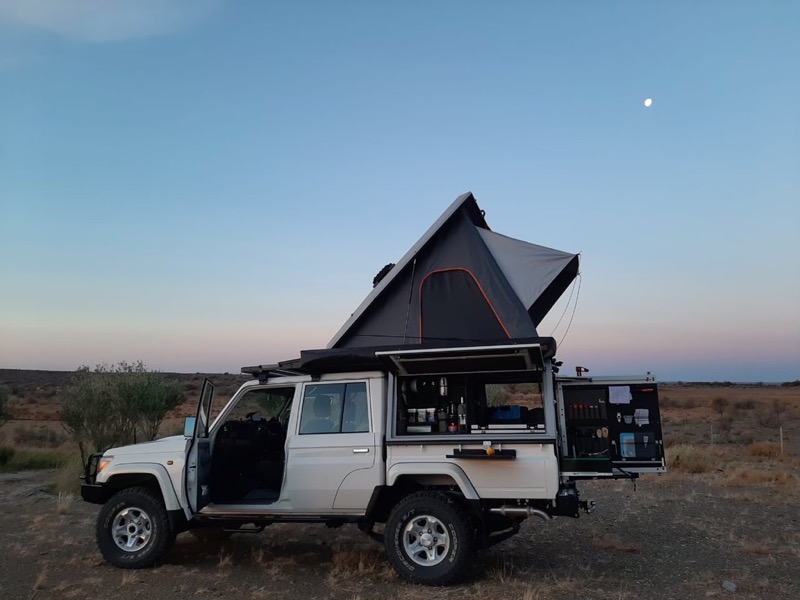
It’s also easy to fall into the trap of taking too many supplies. Paul admits to making this mistake on some of his early trips. Just because you’re going into remote Africa, doesn’t mean there’s nothing available. “You can buy things along the way. Toilet paper is available too, contrary to popular belief. It is about taking what you really need. There is a line between being overprepared and killing your car with weight and being well-prepared with what you’ve got. It takes a number of trips to refine your vehicle, to understand how it drives and how it behaves, what you really need and where you’re going to pack all your equipment.
“My philosophy is to take more experience and less gear.”
Also read: 8 Essential add-ons for overlanding
5. How will you use what you have and what space do you have available?
“When you pack your vehicle, try and pack things in the way you want to use them. So if you’ve got a kitchen area, you want to think about what you want in the kitchen. Can you use little pockets so you can access items easily rather than keep things in a drawer? Can you put the spares and the repair kit and items you don’t use so often further back? Can you get the weight low down between the wheels?
“Access is really important. When I arrive at a campsite, I think, ‘Can I get my chairs and table out really quickly?’ Also: ‘If we stopped on the side of the road, could we make a quick cup of tea or coffee without unpacking the whole car?’ I use a Jetboil or MSR reactor stove to boil water really quickly. I add it into all the vehicles I build, because I find it’s lovely to stop in a beautiful setting where you’ve got a spectacular view and take 5-10 minutes to make a quick cup of coffee.
“If making a cup of coffee or tea means you’re opening the whole vehicle and unpacking half of it, do you think you’re going to do it? We’ve got all the time in the world, but do we want to do it? No, because it’s a hassle.”
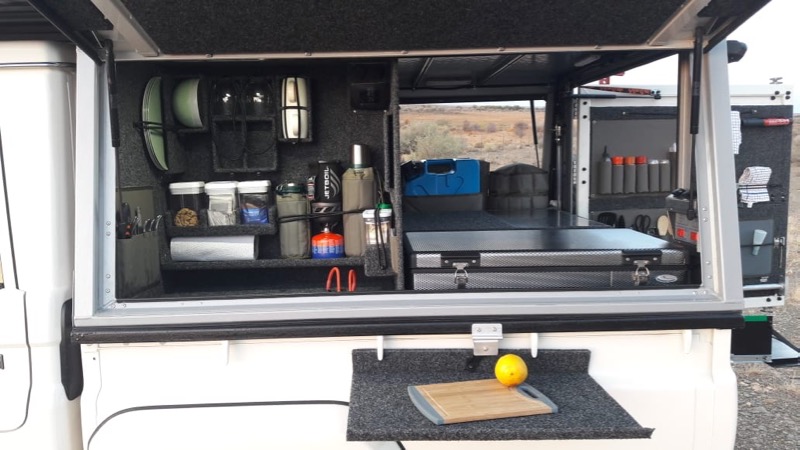
Final thoughts
As an expedition consultant, Paul spends a lot of time before a trip doing scenario planning, chatting to his clients about what they would do in a variety of situations. It’s important to know how you should approach changing a tyre in lion country, for example, or how to access your GPS to get coordinates for a medical rescue team.
It’s as valuable to think about how you want to do your trip, whether it involves scenic coffee stops or having the battery power to work on the road. “Because then you can look at setting up the vehicle in a way that really supports your way of travelling,” he says. With a vehicle that truly suits your needs, the continent is yours to explore.
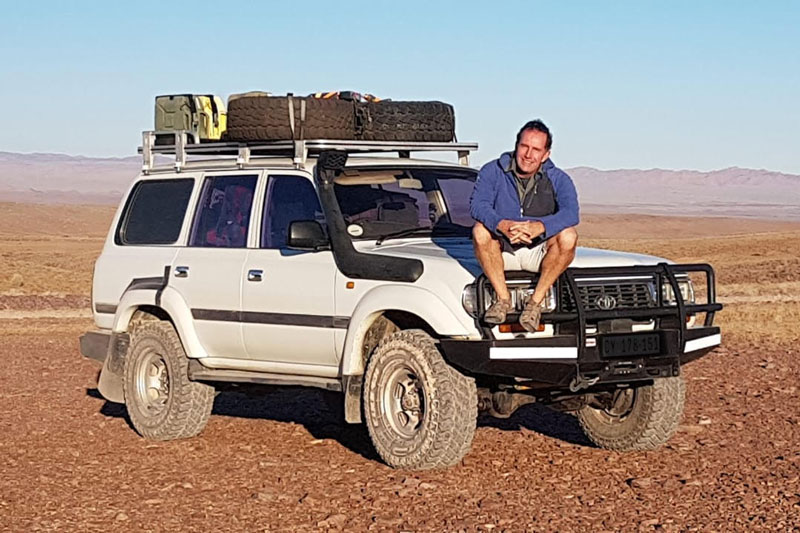
Want to know more about Paul Marsh’s philosophy when it comes to expeditions? Follow him on Instagram, visit his website or check out his YouTube channel.
With need-to-know information on preparing your vehicle and navigating red tape, the Tracks4Africa guide books to Namibia and Botswana will help make your expedition a success. These self-drive guides feature destination information, accommodation listings and detailed country maps.
